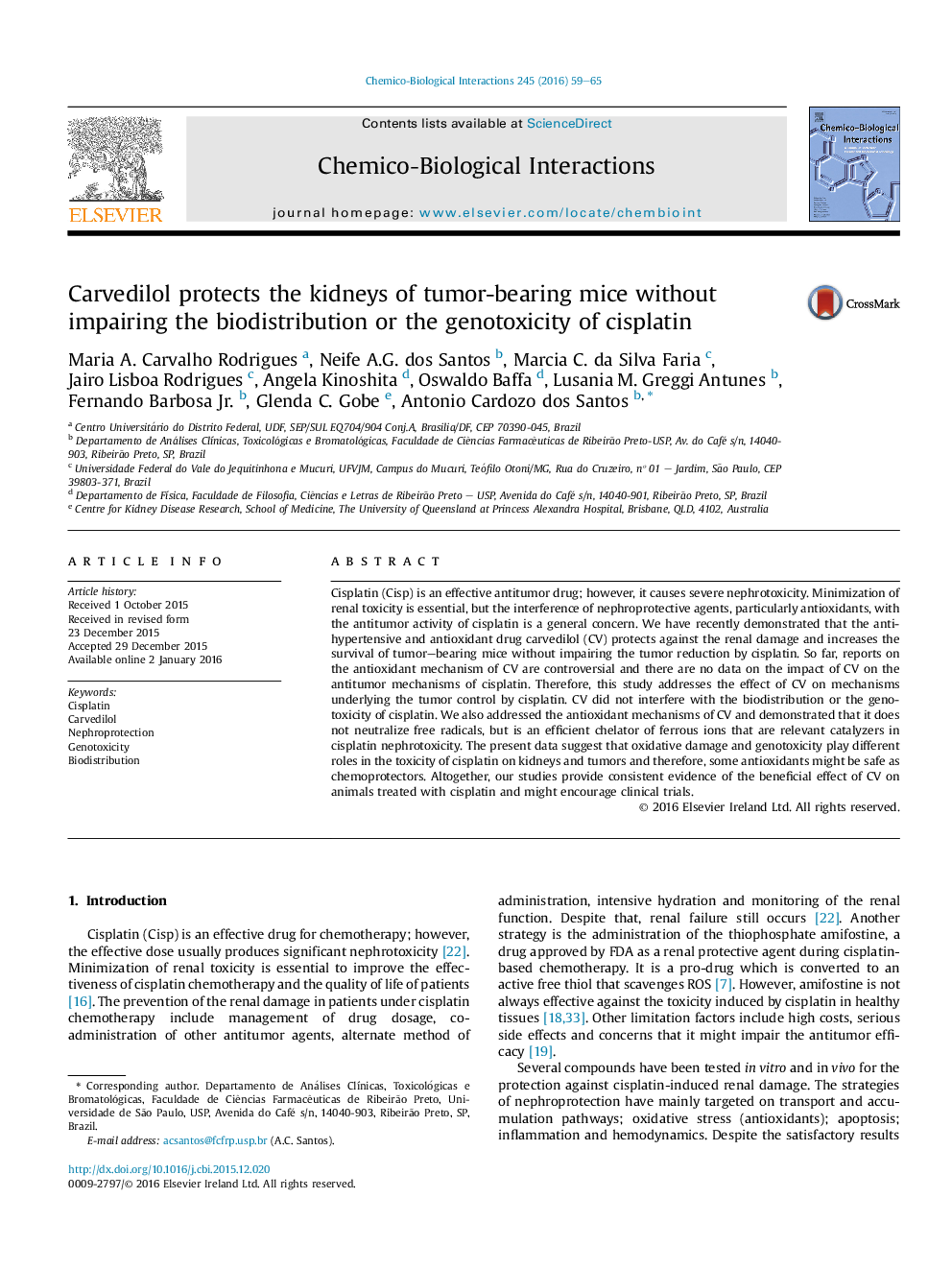| Article ID | Journal | Published Year | Pages | File Type |
|---|---|---|---|---|
| 5847710 | Chemico-Biological Interactions | 2016 | 7 Pages |
Abstract
Cisplatin (Cisp) is an effective antitumor drug; however, it causes severe nephrotoxicity. Minimization of renal toxicity is essential, but the interference of nephroprotective agents, particularly antioxidants, with the antitumor activity of cisplatin is a general concern. We have recently demonstrated that the anti-hypertensive and antioxidant drug carvedilol (CV) protects against the renal damage and increases the survival of tumor-bearing mice without impairing the tumor reduction by cisplatin. So far, reports on the antioxidant mechanism of CV are controversial and there are no data on the impact of CV on the antitumor mechanisms of cisplatin. Therefore, this study addresses the effect of CV on mechanisms underlying the tumor control by cisplatin. CV did not interfere with the biodistribution or the genotoxicity of cisplatin. We also addressed the antioxidant mechanisms of CV and demonstrated that it does not neutralize free radicals, but is an efficient chelator of ferrous ions that are relevant catalyzers in cisplatin nephrotoxicity. The present data suggest that oxidative damage and genotoxicity play different roles in the toxicity of cisplatin on kidneys and tumors and therefore, some antioxidants might be safe as chemoprotectors. Altogether, our studies provide consistent evidence of the beneficial effect of CV on animals treated with cisplatin and might encourage clinical trials.
Related Topics
Life Sciences
Environmental Science
Health, Toxicology and Mutagenesis
Authors
Maria A. Carvalho Rodrigues, Neife A.G. dos Santos, Marcia C. da Silva Faria, Jairo Lisboa Rodrigues, Angela Kinoshita, Oswaldo Baffa, Lusania M. Greggi Antunes, Fernando Jr., Glenda C. Gobe, Antonio Cardozo dos Santos,
